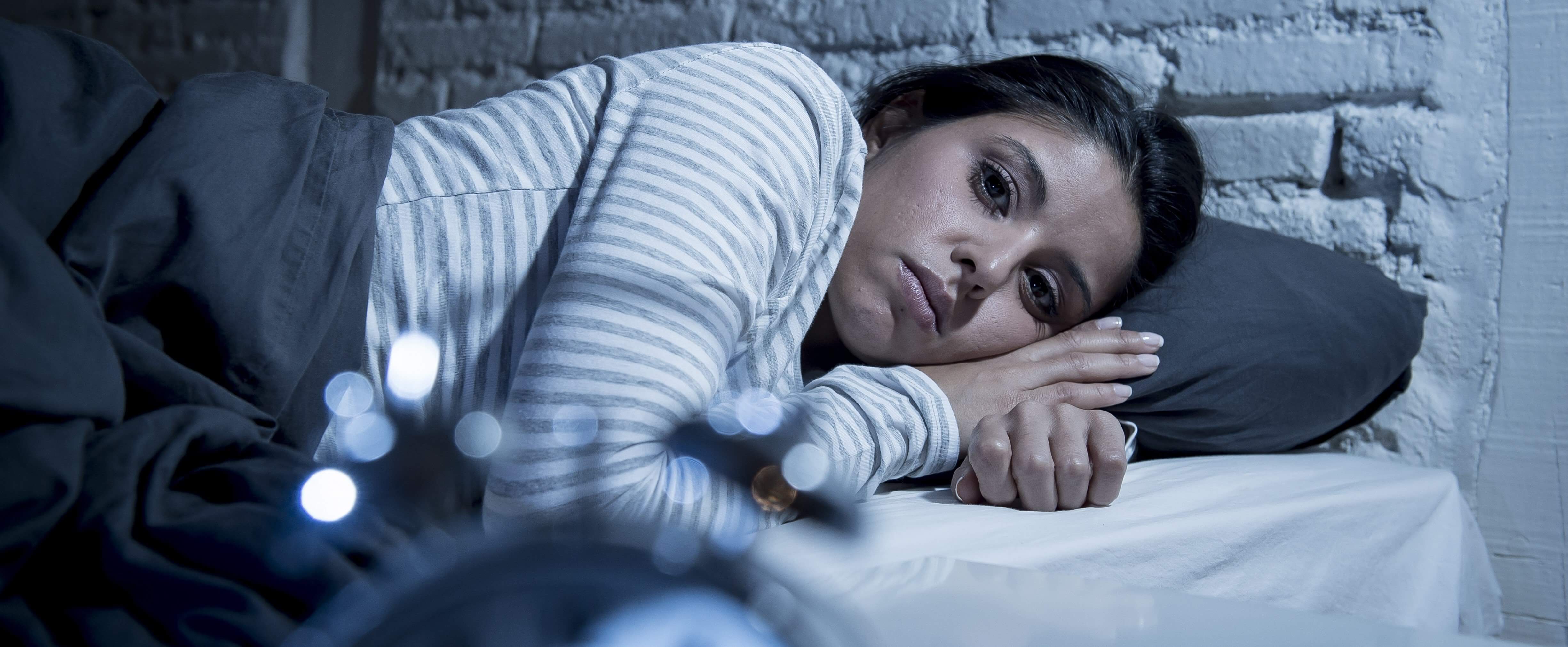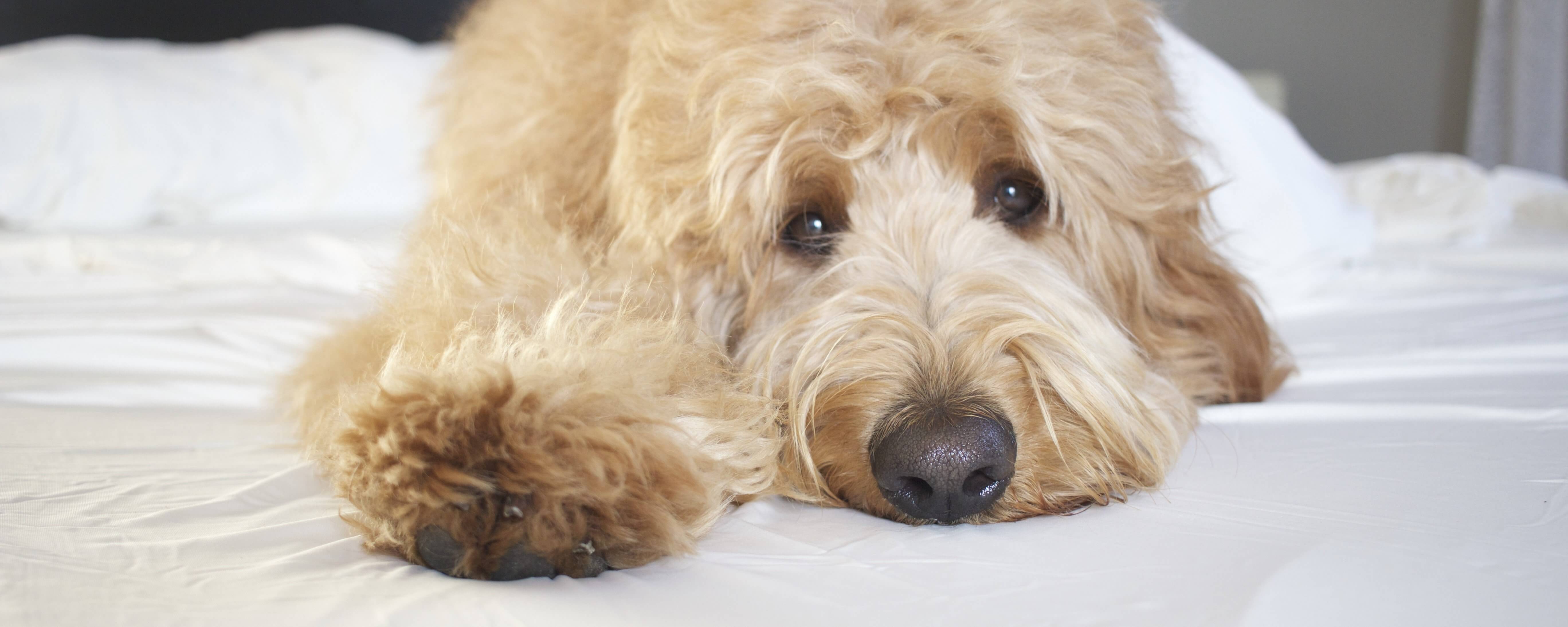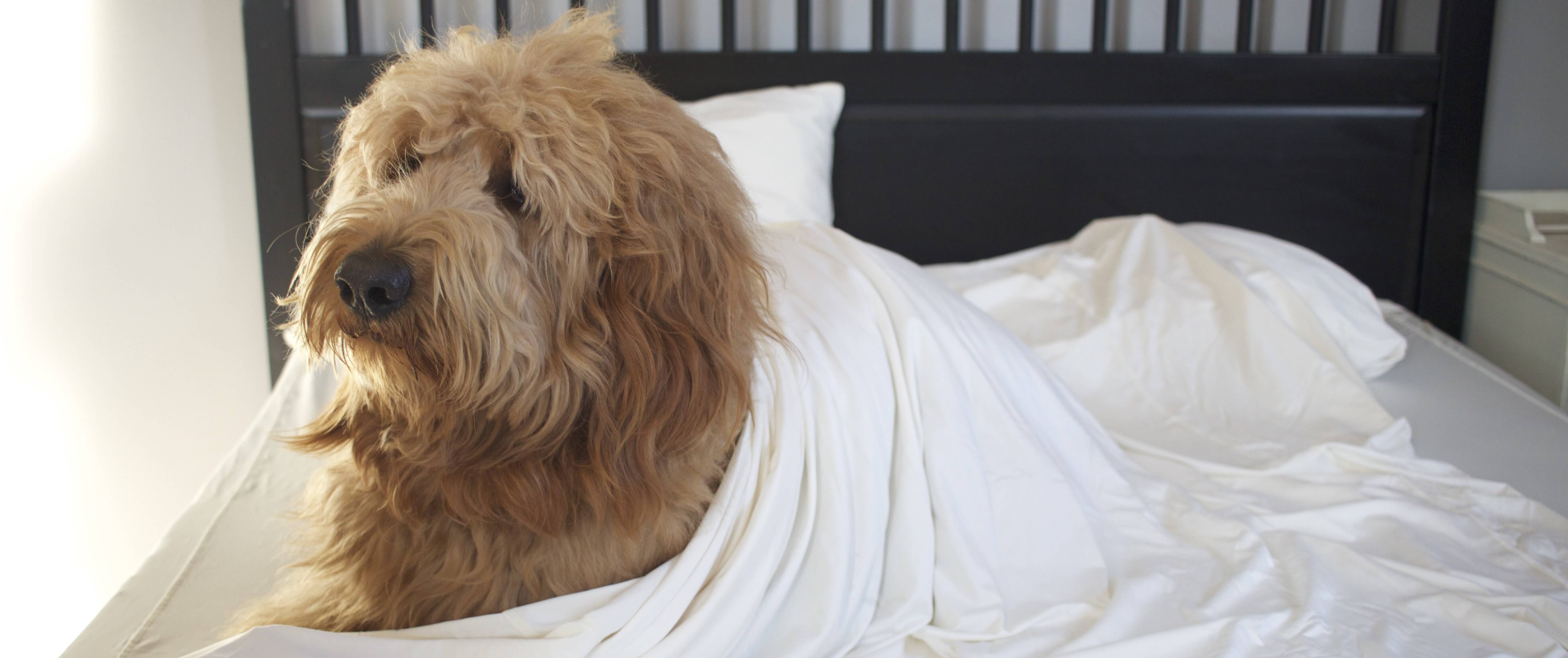What's the best thing you can do to combat a restless night's sleep? The simple answer is to do nothing, which more often than not is easier said than done. In case you're not a "sit tight and wait it out" sleeper, we've compiled a list of the do's and don'ts to address those restless nights and to help you quickly fall back asleep.
Numbers Game
DON'T: Look at the clock.
DO: Count backwards or go through multiplication tables if you feel drawn to numbers. You should avoid looking at the clock at all costs. It's easy to roll over, see what time it is and do a quick calculation of how long until you have to get up, but this can also turn negative. If you pay too much attention to the time, it will become your ultimate focus — you will lie in bed thinking about how you need to fall asleep rather than actually falling asleep. If you find yourself drawn to numbers in the middle of the night, try counting sheep or going through multiplication tables. According to Reader's Digest, these repetitive activities can be soothing, help the brain relax and lull you back to sleep.
Find A Focus
DON'T: Start thinking about the day's events.
DO: Play soothing music or noise to draw your focus elsewhere. If you're the type of person who immediately starts thinking upon waking, try to refocus on something less complicated. Using a noise machine near your bed is a great way to pull your focus away from your own thoughts and to the sounds you're hearing. Be sure to choose soothing sounds or colored noise, such as "pink noise," which runs at a lower frequency than "white noise" and is thought to boost deep sleep.
Stay in Bed
DON'T: Get up and use the bathroom unless absolutely necessary.
DO: Try relaxation or breathing exercises. Unless you absolutely have to use the bathroom, stay in bed. Sitting up raises your heart rate, and getting out of bed will further awaken your body. It's best to stay in bed if you keep waking up at night and try relaxation or breathing exercises. These exercises include tensing and relaxing your muscles, moving from your toes to your forehead or vice versa, and inhaling and exhaling for a certain amount of seconds. Pay special attention to the areas of your body that experience the most stress, such as the neck and jaw.
Avoid Bright and Blue Light
DON'T: Turn on harsh lights or the television.
DO: Use a nightlight if you need to get up. Strong, bright lights can make it extremely difficult to fall back to sleep if you keep waking up at night. The sharp, sudden burst of brightness can disrupt your melanin production, which controls your sleep cycle. Add a nightlight to your spaces if you need to get up to use the bathroom or move to a different room. While many people are drawn to turn on the television to lull them back to sleep, the blue light from it can actually further wake you up and make it harder to return to your slumber. (This also includes the light from your cell phone, so avoid turning that on as well.)
However, if you do switch on the television, there is a trick to block out some of the brightness and blue light: wear sunglasses. In an Indy100 article, Daniel J. Buysse, a professor of psychiatry at University of Pittsburgh School of Medicine, notes that you shouldn't sit too close to the television and that you should wear sunglasses or glasses with orange-tinted lenses while watching.
A Last Resort
DON'T: Lie in bed tossing and turning if you can't fall back to sleep.
DO: Get up and read or perform an activity that will eventually become boring and make you feel sleepy. If after 20 minutes, you still have not fallen back to sleep, get up and move to a different room and engage in relaxing activities like reading a book or listening to calming music. Whatever you choose to do, keep it simple and do it until you feel sleepy, then return to bed. "Don't spend time in bed trying to fall asleep," says Dr. Harneet Walia, MD, DABSM, a sleep specialist at Cleveland Clinic's Sleep Disorders Center. "You probably will start worrying about falling asleep and then learn to associate the bedroom with not sleeping well."
If you keep waking up at night, try one of the ideas mentioned above and consider switching to SHEEX to fall asleep faster and stay asleep longer. Information for this post was sourced from Business Insider, Little Things, Cleveland Clinic, and Bustle.
























